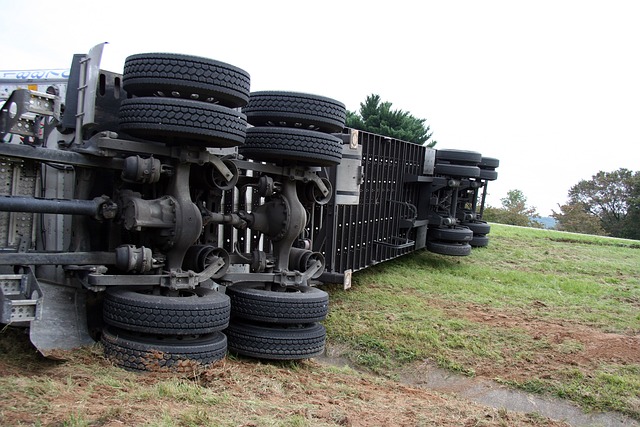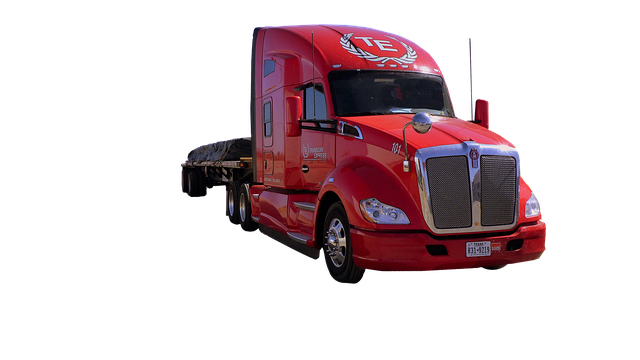Truck batteries are critical for diesel engine functionality, enduring harsh operating conditions from extreme temperatures to mechanical vibrations. They support not just engine starts but also essential auxiliary systems like lighting and communication devices. When selecting a truck battery, it's crucial to consider the best type for your vehicle, whether it's traditional lead-acid, robust AGM models that prevent spills, or lightweight lithium-ion options for electric trucks. Each has its advantages; lead-acid batteries are known for their durability and consistent performance, while AGM batteries offer safety and longevity with enhanced resistance to shock and vibration. Deep cycle batteries excel in handling frequent charge-discharge cycles, which is ideal for trucks that frequently shut off and on. The emergence of lithium-ion truck batteries is transforming the industry by increasing energy density and durability, leading to improved fuel efficiency, lower emissions, and a longer lifespan with less maintenance. Proper maintenance is essential for all truck batteries, including regular checks on charge levels, inspections of charging systems, and environmental protection against extreme temperatures. Adopting smart charging systems can further ensure the longevity and reliability of your diesel truck's battery under its demanding operational conditions.
When it comes to the robust performance of diesel engines, the role of truck batteries is pivotal yet often overlooked. This article delves into the seven primary types of truck batteries that power these workhorses on the road. From conventional lead-acid options to cutting-edge lithium-ion solutions, we’ll compare their strengths and suitability for various heavy-duty applications. Understanding the nuances between AGM batteries’ robust performance and deep cycle batteries’ frequent discharge capabilities will empower fleet managers to make informed decisions. By exploring starter versus deep cycle differences specific to diesel engines, and offering key maintenance tips, we aim to extend truck battery lifespans and enhance vehicle reliability. Join us as we navigate the landscape of truck batteries for diesel engines, ensuring your fleet operates at peak performance.
- Understanding the Role of Truck Batteries in Diesel Engines
- Conventional Lead-Acid Truck Batteries: Reliability and Longevity
- AGM (Absorbent Glass Mat) Batteries: Spill-Proof and Robust Performance for Heavy-Duty Applications
- Deep Cycle Truck Batteries: Optimized for Frequent Discharge and Charging
- Starter vs. Deep Cycle: The Key Differences for Diesel Engines
- Advanced Technology Batteries: Lithium-Ion and Their Impact on the Trucking Industry
- Maintenance and Care Tips for Extending Truck Battery Lifespan in Diesel Vehicles
Understanding the Role of Truck Batteries in Diesel Engines

Truck batteries serve as a critical component in the operation of diesel engines, ensuring that these robust vehicles are equipped to handle a wide range of demands. In diesel engines, the starter battery is tasked with providing the necessary electrical current to crank the engine. This process requires a dependable source of power, and truck batteries, often heavy-duty types like deep cycle batteries, are designed to deliver consistent performance under challenging conditions. The design and construction of these batteries are tailored to endure the harsh environments frequently encountered in commercial and industrial settings, from extreme temperatures to vibrations and shocks caused by the truck’s movements.
The role of a truck battery extends beyond mere engine starting; it is also integral to the vehicle’s electrical system, powering various onboard systems such as lighting, GPS, and telematics. The choice between different types of truck batteries, including lead-acid, AGM (Absorbent Glass Mat), or lithium-ion options, is crucial as it can affect both the reliability and longevity of the vehicle. Each type offers unique advantages; for instance, AGM batteries are known for their resistance to vibration and spill-proof nature, making them a popular choice for trucks that undergo frequent transit on uneven terrain. In contrast, lithium-ion truck batteries offer lighter weight and higher energy density, which can be beneficial for electric or hybrid diesel-electric trucks. Understanding the specific needs of the application is key to selecting the optimal battery type, ensuring that the truck’s electrical systems operate efficiently and reliably, thus facilitating seamless operation of the diesel engine and the vehicle as a whole.
Conventional Lead-Acid Truck Batteries: Reliability and Longevity

Conventional lead-acid truck batteries have long been the staple power source for diesel engines in the transportation industry. These batteries are renowned for their reliability and longevity, making them a go-to option for commercial vehicles that operate under demanding conditions. The lead-acid design, which includes a solid electrolyte and lead plates, has been refined over decades to ensure consistent performance. This tried-and-true technology offers a high initial energy output and maintains a stable voltage even as the state of charge decreases, a characteristic that is crucial for starting diesel engines, especially in cold environments. The robustness of lead-acid truck batteries is underscored by their ability to withstand multiple charge-discharge cycles, ensuring that they can endure the rigorous use typical of heavy-duty applications. Additionally, the relatively low cost and widespread availability of replacement parts make them an accessible choice for fleet operators who prioritize longevity and dependability in a truck battery without compromising on performance.
AGM (Absorbent Glass Mat) Batteries: Spill-Proof and Robust Performance for Heavy-Duty Applications

AGM (Absorbent Glass Mat) batteries stand out as a preferred choice for heavy-duty applications in the realm of diesel engines, particularly within the trucking industry. These advanced batteries are designed with a high tolerance for the rigorous demands of commercial vehicles, offering consistent performance under various conditions. The AGM construction features a felt-like material that holds the electrolyte solution against the plates, eliminating the risk of spills and making them incredibly spill-proof. This robust design not only enhances safety but also ensures longevity and reliability, which are paramount for long-haul trucks and other heavy-duty vehicles. The tight structure of AGM batteries minimizes internal resistance, leading to a more efficient energy supply for diesel engines. Their ability to withstand shock and vibration is unparalleled, making them ideal for the often-unforgiving environments encountered on the road. Truck owners and operators who prioritize performance, durability, and safety in their vehicles will find AGM batteries to be a sound investment for their fleets. When considering a truck battery that can handle the challenges of heavy-duty use, AGM batteries are a top contender due to their exceptional design and capabilities.
Deep Cycle Truck Batteries: Optimized for Frequent Discharge and Charging

When it comes to powering diesel engines, deep cycle truck batteries are specifically designed to handle frequent discharge and charging cycles. These batteries are the workhorses of the commercial transport industry due to their robust construction and capacity for enduring daily use without compromising performance. Unlike conventional starter batteries, deep cycle truck batteries are optimized with lead-tin alloys in their plates, which allow for a greater number of charge-discharge cycles without degradation. This feature makes them ideal for applications where the engine is frequently turned off and on, such as during stops for loading and unloading cargo. The design also incorporates thicker active plate material, enhancing their durability and longevity. As a result, deep cycle truck batteries are a critical component for ensuring consistent power delivery in heavy-duty applications, ensuring that diesel engines start reliably even after extended periods of disuse. For fleets operating long hours or making numerous stops, investing in the right type of deep cycle truck battery can significantly reduce downtime and maintenance costs associated with battery failure, thus contributing to smoother operations and better fleet management.
Starter vs. Deep Cycle: The Key Differences for Diesel Engines

When it comes to equipping diesel engines with the appropriate truck batteries, understanding the distinction between starter and deep cycle batteries is crucial. Starter batteries are designed primarily for cranking the engine, delivering a high current in a short burst to get the diesel engine running. They feature a sponge-type active plate that provides a high power output at a low state of charge. These batteries are typically lighter than deep cycle batteries due to their less dense plate construction, making them ideal for starting applications but not for deep discharge cycles.
On the other hand, deep cycle batteries are engineered to handle multiple discharges and recharges with minimal performance degradation. They are equipped with plates made from a paste consisting of active materials like lead, antimony, and other compounds, which allow them to be deeply discharged and then fully recharged repeatedly without significant loss of capacity or performance. In diesel engines, deep cycle batteries serve as the energy storage solution for applications such as auxiliary power systems, where they are regularly cycled between charged and discharged states. When selecting a truck battery for your diesel engine, it’s essential to consider the specific demands of your vehicle and operational needs, ensuring that you choose between a starter or deep cycle battery that aligns with these requirements for optimal performance and longevity.
Advanced Technology Batteries: Lithium-Ion and Their Impact on the Trucking Industry

In recent years, the advent of advanced technology batteries, particularly lithium-ion variants, has significantly impacted the trucking industry. These high-capacity batteries offer a substantial improvement over traditional lead-acid truck batteries, providing enhanced energy density and durability. Lithium-ion truck batteries are smaller in size yet more powerful, enabling electric trucks to travel longer distances on a single charge while reducing the overall weight of the vehicle, which is crucial for improving fuel efficiency and reducing emissions. The integration of these batteries into the trucking sector marks a pivotal shift towards cleaner and more sustainable transportation options. Fleet operators are increasingly turning to lithium-ion truck batteries due to their long lifespan and lower maintenance requirements compared to their predecessors, which not only cuts operational costs but also minimizes downtime. As the technology continues to advance and costs decrease, lithium-ion truck batteries are poised to revolutionize the industry by offering a viable alternative to diesel engines, particularly in shorter-haul and delivery applications where electric trucks can be most effective. The transition to lithium-ion batteries is not just a technological upgrade but a step towards more environmentally friendly practices within the trucking sector. This shift aligns with global efforts to reduce carbon footprints and promotes the use of renewable energy sources, making it a significant development in the evolution of transportation infrastructure.
Maintenance and Care Tips for Extending Truck Battery Lifespan in Diesel Vehicles

Regular maintenance and careful handling are pivotal in extending the lifespan of your truck battery, particularly in diesel vehicles where the electrical demands can be substantial. To maintain optimal performance and longevity, it’s crucial to perform routine checks on your battery’s charge level. Ensure that the charging system is functioning correctly by regularly inspecting the alternator and voltage regulator. Proper charging prevents excessive discharge, which can lead to premature battery failure.
In addition to regular charging, consider the environmental factors affecting your truck battery. Harsh conditions like extreme temperatures can shorten its lifespan; thus, it’s advisable to store the vehicle in a controlled environment when possible. Additionally, ensure that connections are clean and tight. Corroded or loose terminals can significantly impede the battery’s ability to hold a charge. Regularly cleaning terminals with a mixture of baking soda and water can mitigate this issue.
For diesel trucks, it’s also wise to monitor the engine’s fuel injection system, as issues here can cause irregular battery drain. Faulty fuel pumps or injectors may lead to an excessive draw on the battery, which can be taxing over time. Lastly, employ smart charging technology when available; these systems are designed to adapt charging parameters for optimal battery health and can be particularly beneficial in diesel trucks that are often subjected to frequent starts and stops, which can strain the battery. By adhering to these maintenance tips, you can significantly extend the lifespan of your truck battery, ensuring reliability and performance even under the demanding conditions typical of diesel vehicles.
When considering the optimal truck battery for diesel engines, it’s clear that no one battery type fits all applications. From the tried-and-true reliability of conventional lead-acid batteries to the high-performance and spill-proof nature of AGM batteries, and the deep cycle options designed for frequent use, each has its merits. The comparison between starter and deep cycle batteries sheds light on their distinct roles within diesel engines. Meanwhile, the advent of advanced technology batteries, particularly lithium-ion, is poised to revolutionize the trucking industry with their superior energy density and longevity. Proper maintenance and care are crucial for extending the lifespan of any truck battery in a diesel vehicle. Ultimately, the right choice depends on the specific demands of the operation, balancing performance, cost, and durability to keep the wheels of commerce turning smoothly.



